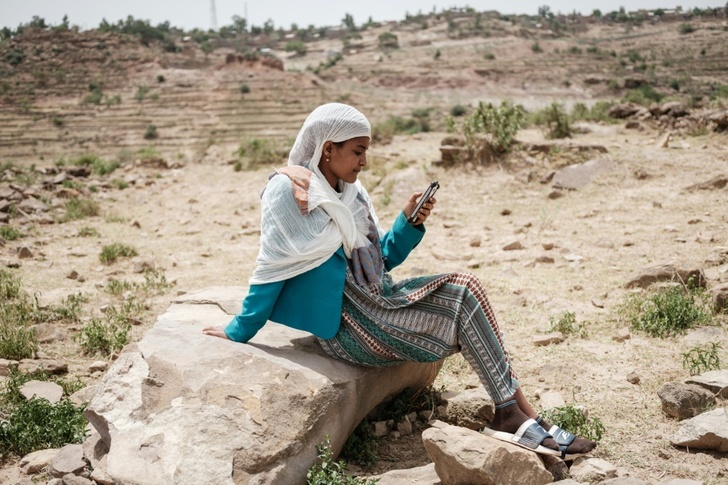Beniam Yetbarek didn't even know his cousin was alive when the phone rang on Christmas Eve, and a voice he hadn't heard in two years crackled down the line from Tigray.
Calls to family in the embattled Ethiopian region hadn't gone through since November 2020, when phone and internet services were largely disconnected at the outset of war, and Tigray was cut off from the world.
But following a ceasefire, phones are starting to ring again, bringing joy but also grief and anger as Tigrayans like Beniam reconnect with loved ones who suffered through one of the world's deadliest conflicts.
"My initial reaction was -- thank God you're alive. I don't know how he survived these last two years, but I'm just glad he's alive," said the 30-year-old photographer of the call with his cousin in the city of Axum on December 24.
Any relief was short-lived, though.
Beniam's family had already lost a relative to the war and hung on every word as the cousin spoke of fear and hunger in Axum, Eritrean troops on the streets, and a sick uncle unable to find diabetes medication.
Huddled around the phone, they learned a beloved great-aunt had also died in the months without contact, while a cousin was missing and presumed dead.
"It took the air out of the room," Beniam told AFP from Seattle.
"My aunt started crying. Two of my cousins were silent... We were trying to pull it together while the line was active, but once he hung up, we just started all quietly praying."
- Joy and grief -
Phone services were briefly restored in parts of Tigray in early 2021 before being disconnected again in June that year.

The truce paved the way for re-opening Tigray, a region of six million people, and the lifting of what internet advocacy groups said was among the world's longest government-imposed shutdowns.
In Mekele, crowds were thronging phone stores day after day to reconnect their old numbers, said a 29-year-old woman who flew to the city after flights resumed on December 28.
"My mother cried when she heard my voice after all these months. I also cried," said a 42-year-old man in Addis Ababa, who spoke to AFP on condition of anonymity, citing security concerns.
Others, however, have received devastating news.
"They killed him just outside his house," said Meharit Gebreyesus of her uncle, one of seven relatives she was told were executed by Eritrean soldiers near Adwa in late October.
Her aunt was safe in Adwa, having taken refuge after her village was looted and razed.

Tigray remains off-limits to foreign journalists and AFP cannot independently verify these accounts.
But all sides to the Tigray conflict have been accused by independent observers of atrocities, and charges of ethnic cleansing and deliberate starvation have been made.
- Agonising wait -
Beniam said not knowing the fate of his family in Axum -- where hundreds of civilians were massacred in November 2020 -- was agonising.

A 25-year-old Tigrayan woman told AFP she was "speechless" when her sister rang out of the blue from Shire, a city heavily bombed in October, to say the family was safe.
But she was angry, too, at being kept in the dark so long.
"I cannot believe that in this century, I had to dream... just to speak to family (and find out) whether they're alive or not."
More than two months after the warring sides signed a peace deal, service remains patchy even in major cities, with calls cutting out after a few minutes, or not connecting at all.
"Without exaggeration, we had to call more than 100 times for that one phone call to go through," said a 40-year-old woman who spoke with her parents on January 3 for the first time in 18 months.
The state utility said Tuesday that electricity would be fully restored in Tigray within two weeks.

Inquiries to Ethio Telecom, the state telco, went unanswered.
Meharit, meanwhile, still cannot reach her 65-year-old father or six sisters in Negash, in southern Tigray, and can do little but pray they answer the phone.
"I don't know if he's alive or not," she told AFP.
str-np/txw/cw/mca
© Agence France-Presse
Your content is great. However, if any of the content contained herein violates any rights of yours, including those of copyright, please contact us immediately by e-mail at media[@]kissrpr.com.
Source: Story.KISSPR.com

